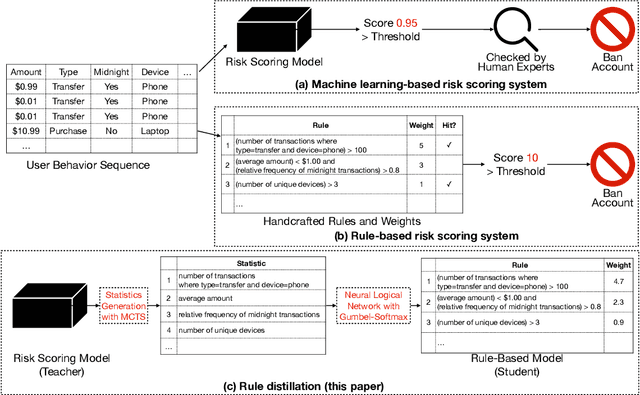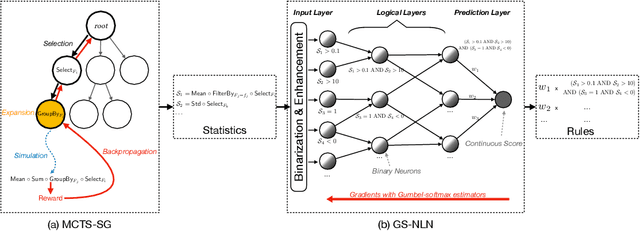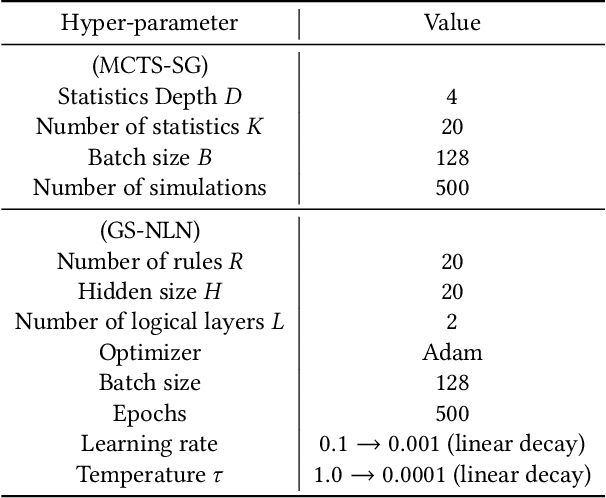RuDi: Explaining Behavior Sequence Models by Automatic Statistics Generation and Rule Distillation
Paper and Code
Aug 16, 2022



Risk scoring systems have been widely deployed in many applications, which assign risk scores to users according to their behavior sequences. Though many deep learning methods with sophisticated designs have achieved promising results, the black-box nature hinders their applications due to fairness, explainability, and compliance consideration. Rule-based systems are considered reliable in these sensitive scenarios. However, building a rule system is labor-intensive. Experts need to find informative statistics from user behavior sequences, design rules based on statistics and assign weights to each rule. In this paper, we bridge the gap between effective but black-box models and transparent rule models. We propose a two-stage method, RuDi, that distills the knowledge of black-box teacher models into rule-based student models. We design a Monte Carlo tree search-based statistics generation method that can provide a set of informative statistics in the first stage. Then statistics are composed into logical rules with our proposed neural logical networks by mimicking the outputs of teacher models. We evaluate RuDi on three real-world public datasets and an industrial dataset to demonstrate its effectiveness.
 Add to Chrome
Add to Chrome Add to Firefox
Add to Firefox Add to Edge
Add to Edge